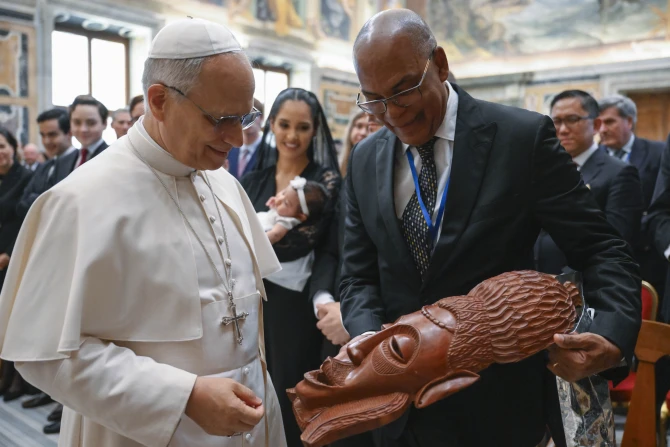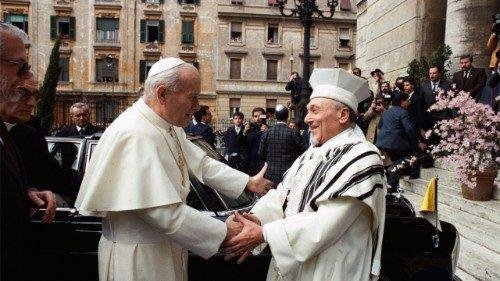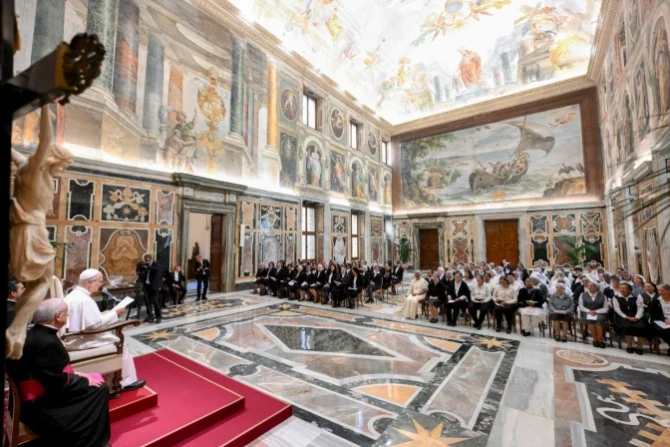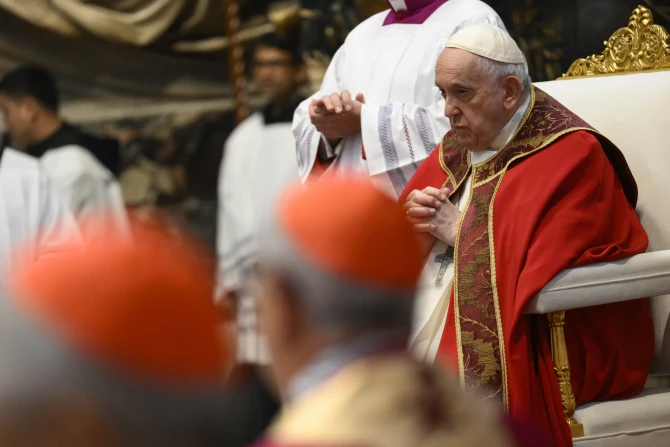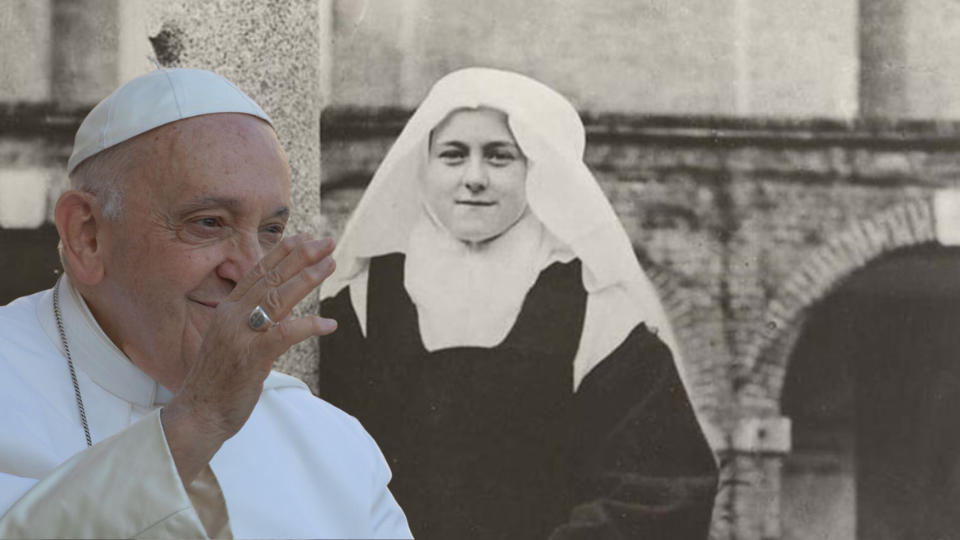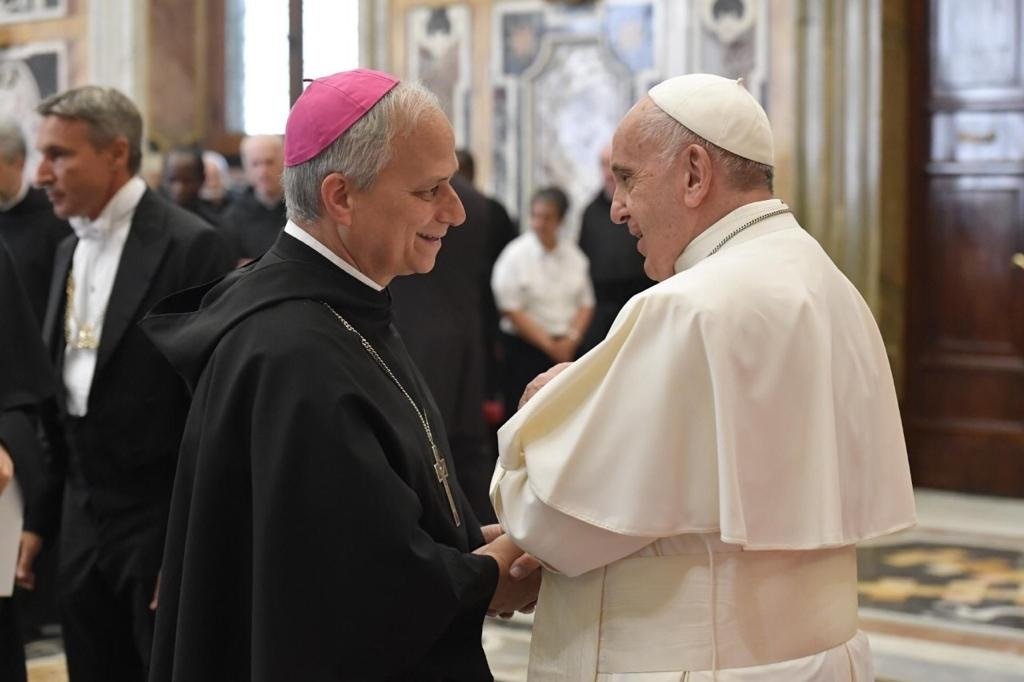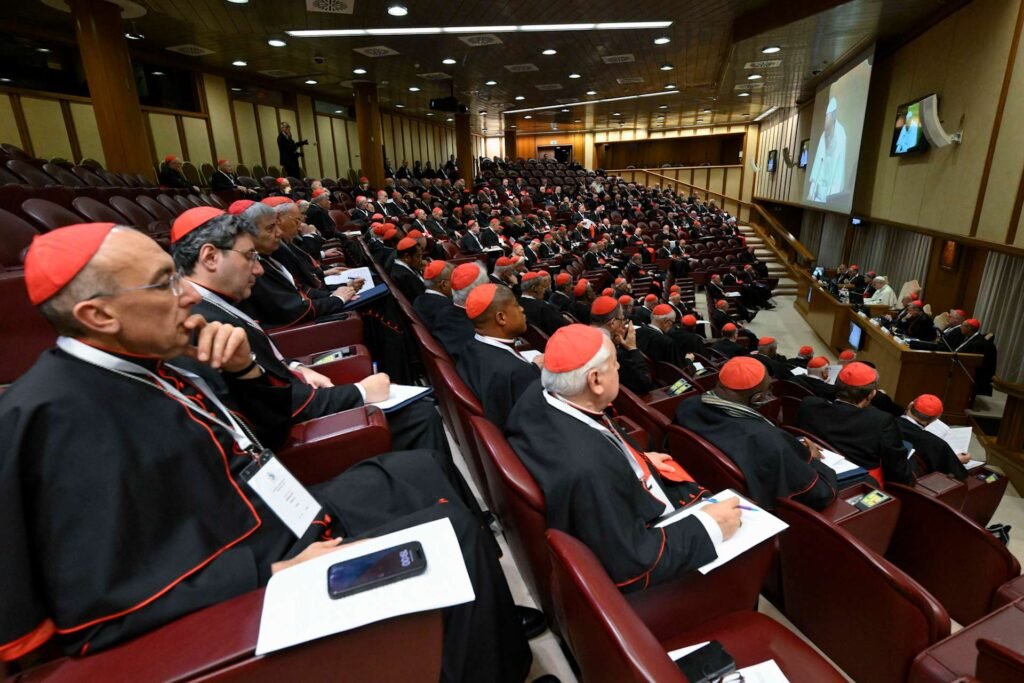Pope Leo XIV on Saturday urged Catholic lawmakers to draw inspiration from St. Augustine’s “City of God” as they navigate shifting global politics, warning against reducing the idea of human flourishing to mere wealth or consumer comfort.
SIGN UP FOR OUR NEWSLETTER HERE
Speaking to the International Catholic Legislators Network in the Clementine Hall of the Apostolic Palace, the pope called on parliamentarians to ensure that “power is tamed by conscience and law is at the service of human dignity.”
“Authentic human flourishing is seen when individuals live virtuously, when they live in healthy communities, enjoying not only what they have, what they possess, but also who they are as children of God,” he told the lawmakers.

“It ensures the freedom to seek truth, to worship God, and to raise families in peace. It also includes a harmony with creation and a sense of solidarity across social classes and nations.”
The International Catholic Legislators Network, founded in 2010 by Austrian Cardinal Christoph Schönborn and British peer David Alton, gathers Catholic parliamentarians annually in Rome to discuss religious liberty, Church-state relations, the protection of life, and the role of Catholic thought in politics.
This year’s four-day meeting in Rome took up the theme “The New World Order: Major Power Politics, Corporate Dominions, and the Future of Human Flourishing.”

In his speech, Pope Leo pointed to St. Augustine of Hippo, who wrote “The City of God” during the collapse of the Roman Empire.
“To find our footing in the present circumstances — especially you as Catholic legislators and political leaders — I suggest that we might look to the past, to that towering figure of St. Augustine of Hippo,” he said.
“As a leading voice of the Church in the late Roman era, he witnessed immense upheavals and social disintegration. In response, he penned ‘The City of God,’ a work that offers a vision of hope, a vision of meaning that can still speak to us today.”
The pope shared how Augustine taught that there are two “cities” intertwined in human history that signify two orientations of the human heart: “The City of Man, built on pride and love of oneself, is marked by the pursuit of power, prestige, and pleasure; the City of God, built on love of God unto selflessness, is characterized by justice, charity, and humility.”
Leo said that lawmakers are called to act as “bridge-builders between the City of God and the City of Man.”
“Augustine encouraged Christians to infuse the earthly society with the values of God’s kingdom, thereby directing history toward its ultimate fulfillment in God, while also allowing for authentic human flourishing in this life,” he said.
“The future of human flourishing depends on which ‘love’ we choose to organize our society around — a selfish love, the love of self, or the love of God and neighbor.”
Pope Leo also challenged prevailing cultural notions of progress and development. “We must clarify the meaning of human flourishing. Today, a flourishing life is often confused with a materially wealthy life or a life of unrestricted individual autonomy and pleasure,” he said.
“The so-called ideal future presented to us is often one of technological convenience and consumer satisfaction. Yet we know that this is not enough. We see this in affluent societies where many people struggle with loneliness, with despair and a sense of meaninglessness.”
Instead, he insisted, true flourishing stems from what the Church calls “integral human development,” or “the full development of a person in all dimensions: physical, social, cultural, moral, and spiritual.”
“This vision for the human person is rooted in natural law, the moral order that God has written on the human heart, whose deeper truths are illuminated by the Gospel of Christ,” he said.
Pope Leo XIV is the first pope from the Order of St. Augustine, also known as the Augustinians, an ancient religious order with thousands of members worldwide. Leo served as the head of the order from 2001 to 2013.
In the first months of his pontificate, Pope Leo has cited his spiritual father, St. Augustine, on multiple occasions, establishing a pastoral approach deeply rooted in the Augustinian tradition.
Before greeting the lawmakers one by one, the pope thanked them for “bringing the Gospel message into the public arena.”
“Be assured of my prayers for you, your loved ones, your families, your friends, and especially today for those whom you serve,” he said. “May the Lord Jesus, the Prince of Peace, bless and guide your efforts for the true flourishing of the human family.”
This article was originally published by CNA.

